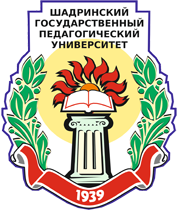Воспитание полоролевого поведения у детей старшего дошкольного возраста в игровой деятельности
Gender-role education of senior preschool aged children in role playing
Аннотация
В статье рассматривается проблема полоролевого воспитания детей дошкольного возраста. Исследуются вопросы влияния на полоролевое поведение этических норм и нравственных качеств, соответствующих представителям той или иной гендерной группы. Игровая деятельность – ведущий вид деятельности в дошкольном возрасте, поэтому особое внимание уделено анализу полоролевого поведения мальчиков и девочек в игре. Помимо сюжетно-ролевых игр, предлагается использовать в работе с дошкольниками народный фольклор, ознакомление с художественными произведениями, игры-состязания, игры-инсценировки и др. В статье описываются базовые компоненты, входящие в содержание полоролевого воспитания детей. Автором даются конкретные рекомендации по организации развивающей предметно-пространственной среды, способствующей формированию полоролевого поведения детей. Обсуждается вопрос взаимодействия дошкольного образовательного учреждения и семьи в контексте данной проблемы.
Abstract. The subject of gender-role education of preschool aged children is highlighted in the article. The author researches the questions of influence on gender-role character of ethical standards and moral qualities relevant to representatives of one gender group or another. Game activity is a leading form of activity at preschool age; that is why special attention is focused on analyzing gender-role behaviour of boys and girls in role playing. Beside role playing games it is offered to use national folklore, introducing to fiction, competition games, staging games and others. Basic components which are the part of the content of gender-role education of children are described in the work. The author provides specific recommendations on creating a developing subject-spatial environment that promotes to form gender-role behaviour of children. The topic of interaction between preschool educational institution and family is discussed within the context of the issue.






